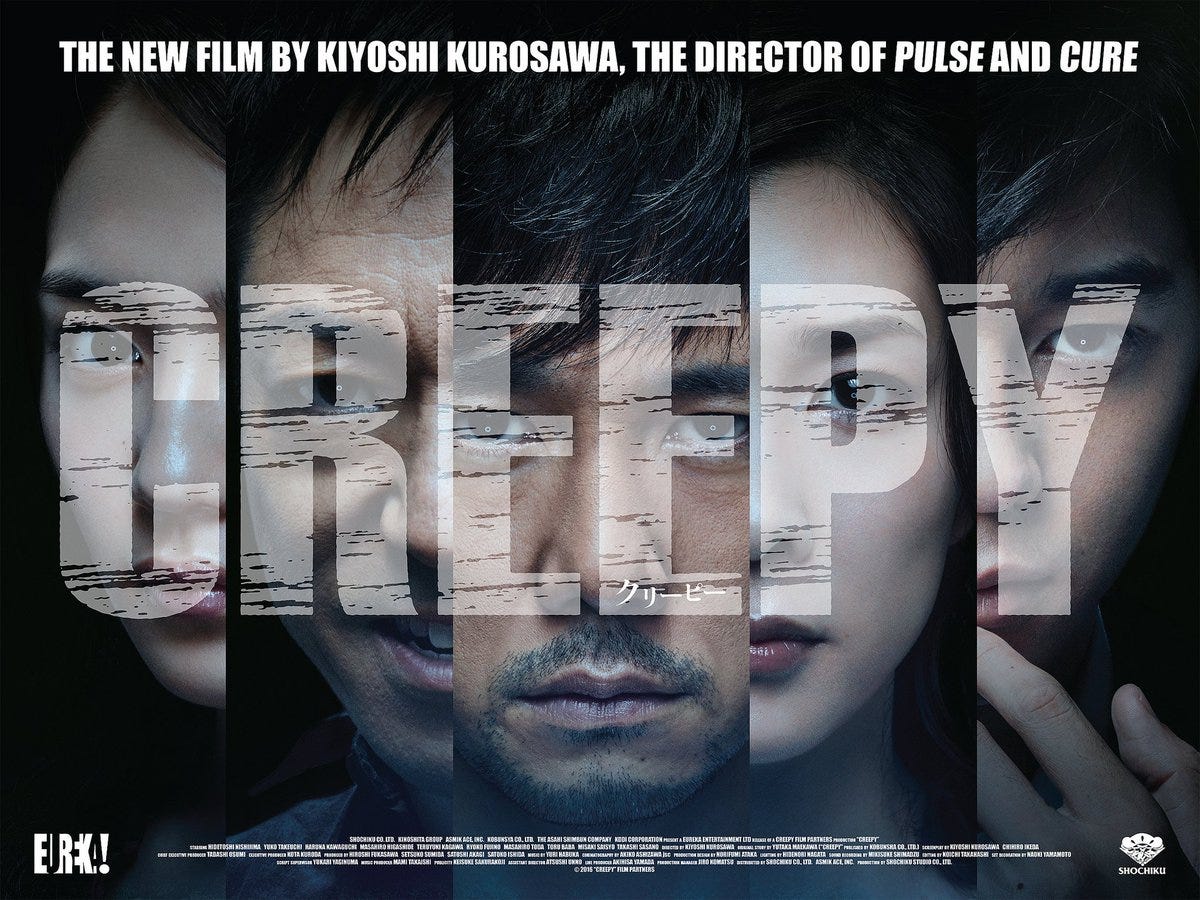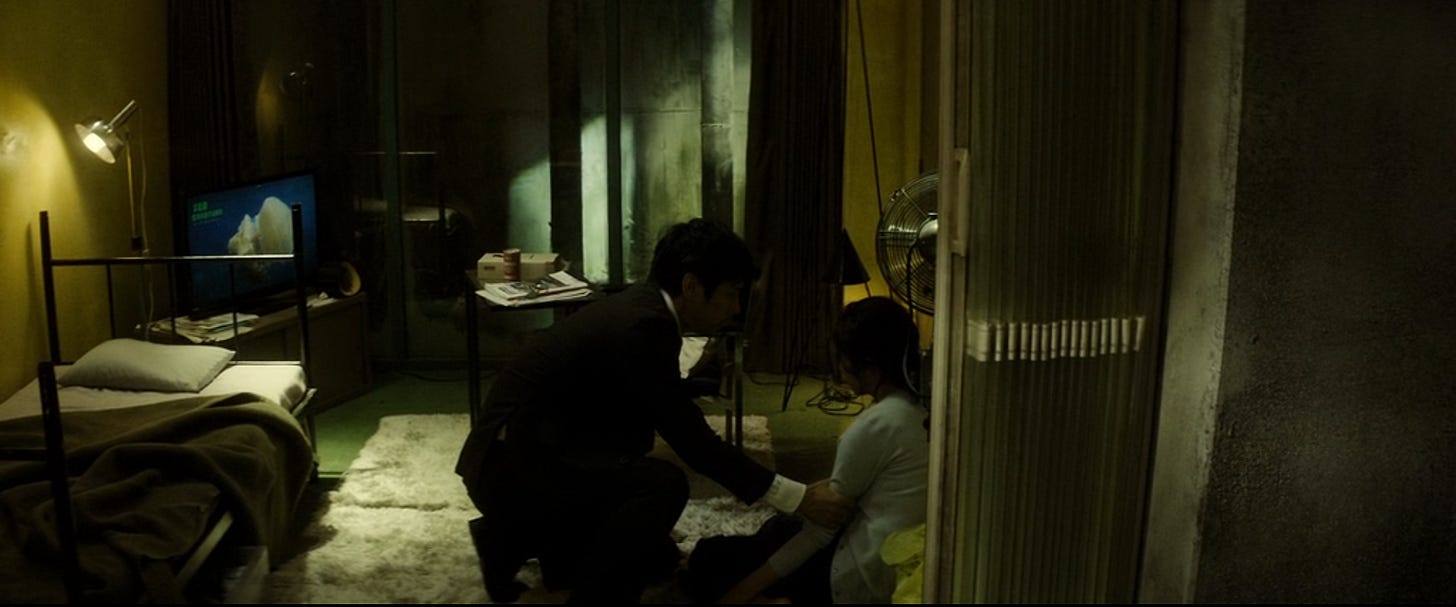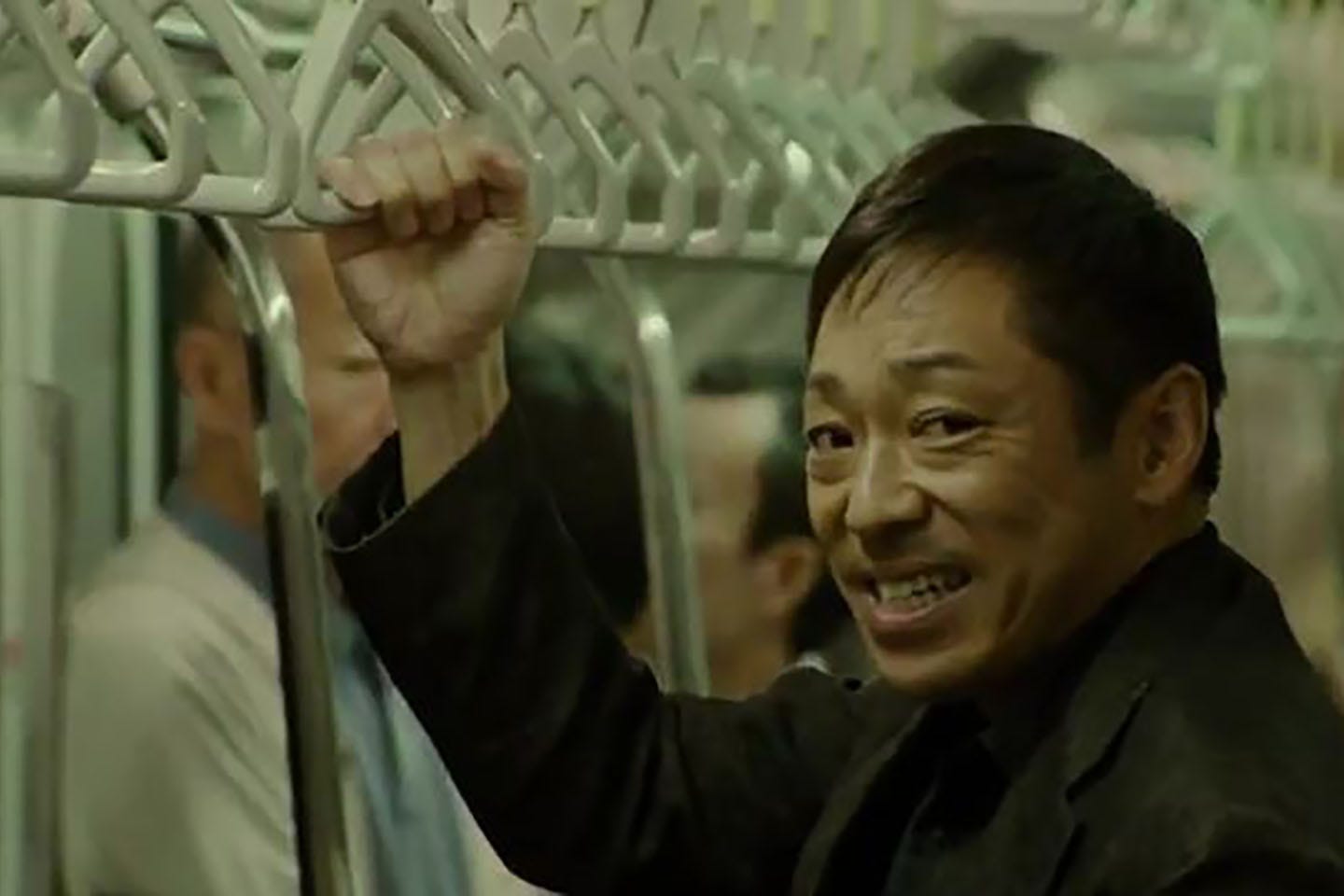For the last few years, I have used October to give myself a viewing assignment: a different horror film each day. Now that I have escaped the real life horror of New Zealand’s public service, I intend to write a piece inspired by each film.
My tenth film is Kiyoshi Kurosawa’s Creepy / クリーピー 偽りの隣人 (2016).
Kiyoshi Kurosawa holds a legendary place among horror afficionados for two films in particular: Cure (1997) and Pulse (2001). In addition to being absolute masterpieces, they came at a moment when ‘J-horror’ was having a crossover moment in the West with Pulse even receiving an ill-fated American remake in 2006. Aside from these towering achievements, Kurosawa has maintained a prolific output (and not just in the horror genre). He even has three films coming out in 2024!
Creepy, one of his lesser-seen horror films, deals with the distinction between logic and intuition, an important dichotomy in understanding horror. For me, horror has always been a genre fuelled by vibes rather than rationality. There is nothing less interesting than criticism of horror focused on things like ‘plot holes’ or ‘characters acting irrationally’. If a film is operating based on nightmare logic, then of course characters are going to do stupid things—there is something terrifying about making bad decisions and feeling like there’s nothing you can do about it. So many of my favourite horror films (I’m thinking of some of Dario Argento’s in particular) are set in this kind of world.
Of all the horror movie monsters, none straddles the worlds of logic and intuition more awkwardly than the serial killer. Pop culture has taught us that serial killers are evil geniuses, playing cat and mouse with out-of-their-depth detectives. If the cops are to defeat the killer, they will have to draw upon both logic (collages of tenuous connections) and intuition (trusting their gut).
In real life though, serial killers aren’t that interesting and their psychology is pretty straightforward. They’re more often than not, criminals of privilege (disproportionately white and/or male and/or cops) taking advantage of a system of extreme inequality to prey on those who society doesn’t value (disportionately women and/or PoC and/or sex workers). When promoting this year’s Longlegs (a film that has plenty in common with Creepy), director Oz Perkins (whose father played the archetypal onscreen serial killer) discussed his desire to undermine the romanticism of the serial killer. This was a preoccupation of Coma as well, which features a couple of scenes about online serial killer fandom, notably a Zoom call in which the protagonist and her friends argue about which real-life murderer is hottest.
In Creepy, Koichi (Hidetoshi Nishijima, of Drive My Car fame) starts as a police mindhunter, convinced of the twisted logic of serial killers. In the opening scene, he calls a detained man “a perfect psychopath”. A colleague on the force is less convinced: “He killed eight people. He’s just another asshole”. Koichi tries to diffuse a standoff using logic and reason but fails, proving the sceptic correct. The tragedy motivates him to quit the force to become an academic, delivering lectures on criminal psychology.
Koichi and his wife Yasuko (Yūko Takeuchi) move to a new neighbourhood where the vibes are off. Their neighbours refuse to take gifts from them out of fear of creating a sense of obligation (sound familiar?) with one notable exception: Nishino (Yūko Takeuchi). The problem is that there’s something off about Nishino, he feels sort of… Creepy. As Koichi and Yasuko try and work out how they should feel about their neighbour, Koichi starts getting pulled back into a cold case. This confluence of factors puts Koichi’s understanding of logic and intuition to the test.
As in Kurosawa’s more famous horror films, Creepy deals in ambiguities and never presents clear-cut answers to all its mysteries but it is a very effective showcase of his knack for horror imagery grounded in the mundanity of everyday life.






